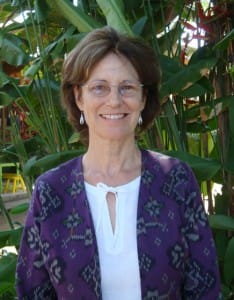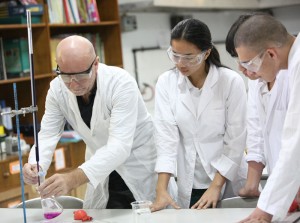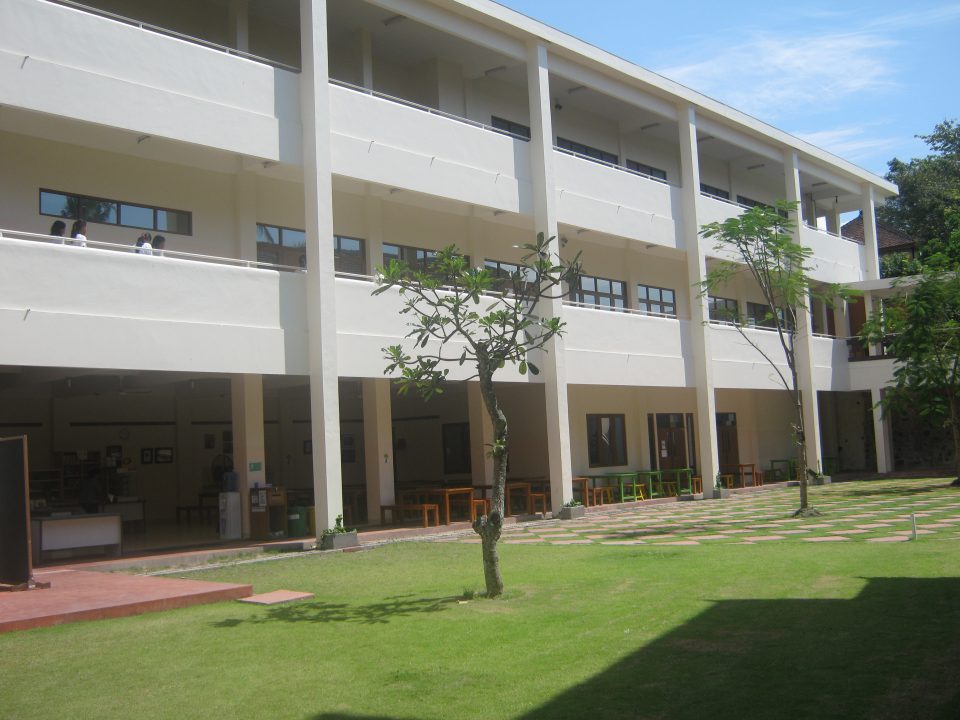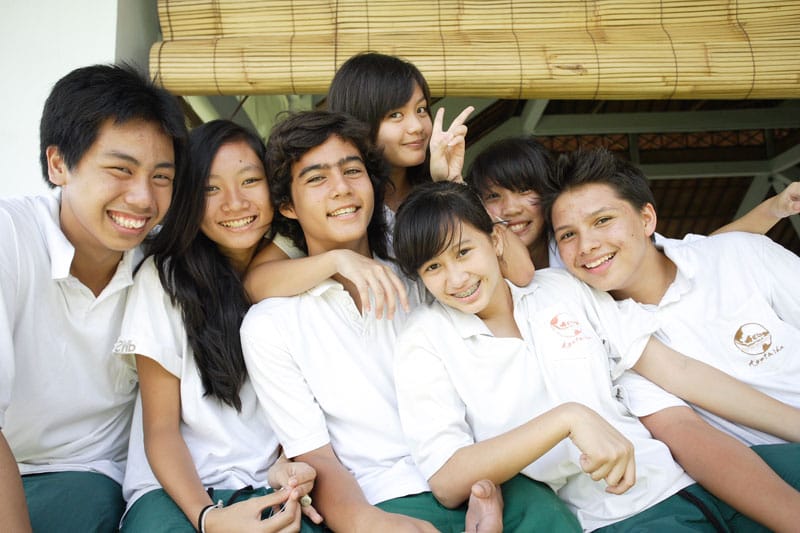Choosing a good school for our kids is every parent’s goal, and there are several magnificent schools, real gems, on the island of Bali.
Indonesia Expat talks to Katie Jones, Director of Dyatmika School, located near Sanur on the eastern side of Denpasar, about what it takes to meet and beat the expectations of today’s parents and children in Bali.

Dyatmika is a top independent bilingual national and international school in Bali with its students getting into top Universities in the United States, Australia and Europe. Since taking over as leader, Katie and her team have improved the performance of the school five-fold; achieving eight top awards in June 2012, with three “Top in the World” awards from the Cambridge International School Examination Board.
Katie is helped by Aprile Denise and Ayu Sugati, respectively International and National Heads of the Primary School, John Young and Candra Muljono, respectively International and National Heads of the High School, half a dozen Departmental Heads and a host of other very capable and dedicated teachers and school support staff. Katie says running a 21st century school “is like conducting a symphony orchestra… it’s a privileged job to have… we try to draw out the best in everyone… equipping them with life skills to enable them to stand out as leaders in their future worlds.”
Katie, an Aberdonian, has an M.A. in Education from Stirling University, Scotland. She worked in schools in Canada, USA, Africa and Jakarta before coming to Bali eight years ago as the new leader of Dyatmika School. She is hardworking, strong-willed, warm-hearted, down-to-earth, a practical person with a strong ethos of fairness. She is very much guided by the school’s charter written by the school’s founders in 1995, which guides the core values of the school to this day.
Coming to Dyatmika provided Katie with a different type of challenge to anything she had done or achieved before. The school was then approaching ten years old, reasonably run, but without the expertise to develop a strong high school; the School Board recognized they needed to up their game and to become more international. They appointed Katie to overhaul their bilingual syllabus. She developed the University of Cambridge International School and Examination system, one of 166 such schools in Indonesia and 9,000 worldwide today, and achieved accreditation within a year. The High School is Katie’s real achievement. Most of today’s international and many of the national staff have been hired by her. She says, “Teachers don’t come to work in this school for the money – our educators are much more altruistic than that. Our outstanding teachers are role models for the school’s diverse range of students.”
 She hired the best people she could attract to head up each Department, Science (an accomplished PhD researcher and teacher from London’s National Institute for Medical Research, UK), Languages Department, with two main subjects English and Indonesian, is staffed, not by grammar specialists, but three English literature scholars who read real drama into the wide range of texts their students use. Similarly, Indonesian classical writers are employed to capture the nature of the language and its imagery. Staff in the Art, Drama and Music Department are all similarly gifted. Generating a scholarly environment where high-achiever and normal student are stimulated to read more widely and so learn to apply techniques of literature criticism much more than is sought from standard texts in more regular schools.
She hired the best people she could attract to head up each Department, Science (an accomplished PhD researcher and teacher from London’s National Institute for Medical Research, UK), Languages Department, with two main subjects English and Indonesian, is staffed, not by grammar specialists, but three English literature scholars who read real drama into the wide range of texts their students use. Similarly, Indonesian classical writers are employed to capture the nature of the language and its imagery. Staff in the Art, Drama and Music Department are all similarly gifted. Generating a scholarly environment where high-achiever and normal student are stimulated to read more widely and so learn to apply techniques of literature criticism much more than is sought from standard texts in more regular schools.
In primary school, each student is taught the same subject in both languages equally without unnecessary repetition– today in English, tomorrow in Indonesian – up to Year 6, which is seen as the most important exam for many Indonesian parents. Year 9, Junior High School, is another major hurdle for students to get through, with the University of Cambridge International Certificate of Secondary Education (IGCSE) and Indonesian National curriculum being taught – the first in English, the latter in Indonesian. But they sail through as they are already well versed in their understanding of the subject, so students don’t need to have lots and lots of homework to achieve exceptional performances. If you are taught something well in the beginning and get sufficient practice at applying it, it becomes second nature. Q.E.D.
And this is the philosophy that underlies the school. Proper preparation throughout the school year, continuous improvement to make it a better learning experience this year and next, with the students always the central focus. As one eight-year-old primary school student put it, “It’s great. I really enjoy it. Sometimes the teachers are tough on us. But then when we understand it, it’s easier again.”
Katie says, “Being safe is not enough… the world is changing so rapidly, our students have to embrace change. We empower our teachers and students to step outside their comfort zones.”
Great care is taken in selecting each teacher. “At Primary School level, it’s enthusiastic generalists who love children… and who enjoy spending their whole day with children, while the High School has accomplished specialists who impart a love of their discipline, are willing to take risks, and encourage the imagination and creativity of our students.”
One of the biggest challenges Katie has faced has been getting the best value for the Dyatmika school from the budget, whether for staffing, new classrooms, equipment, books or learning materials. It was too small initially, so fees went up, and now the school balances its books with income and expenditure about evenly matched in the true spirit of what an Educational Yayasan should be. There are no fancy “fat cat” cars being driven by governors, for there are no real “owners” of the school – at least not in the shareholder sense – the money they get in is money spent on education – and that is what Katie’s job is, to ensure it is achieved. The eleven-member board work for free. They are a mix of parents, mostly Indonesians, with a good male to female ratio, with the Dyatmika School’s Director attending their meetings presenting her various reports for them to discuss, listen to their recommendations and approve the future development of the school.
In summing up, Katie says about her current position, “All the things I have learnt in my teaching and administrative life so far, I find I can apply here… to be able to work in this place is a privilege… we are attempting to draw out the best in everybody. This is most rewarding… and seeing the graduates when they come back to visit what a joy!”
Eight years in the job – this Scottish lass is not for moving on yet – she is having the time of her life.





